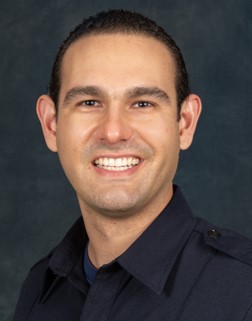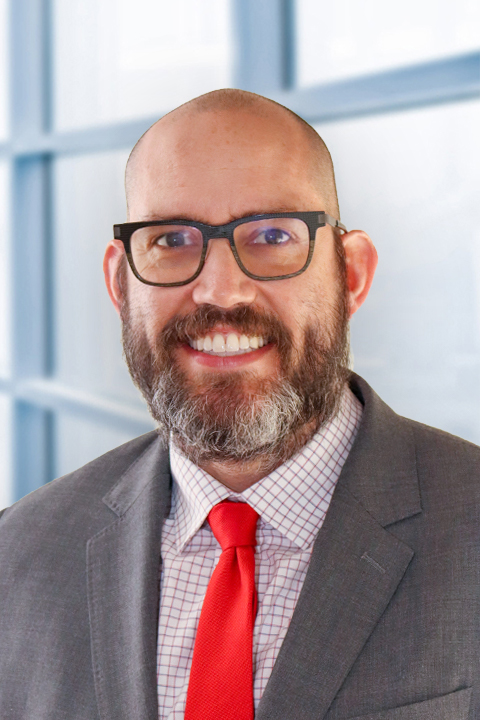In this episode, Jason McMahon addresses the persistent challenges of cyber incidents in public entities, emphasizing the importance of employee training, software updates and cautious use of public Wi-Fi and vendor connections. He explains the differences between phishing and spear phishing, shares cautionary tales of cyber scams, and highlights the risks associated with USB drives and external devices. Jason also offers advice on cyber insurance, stressing the need for proactive measures to enhance security and reduce vulnerabilities.
*The views and opinions expressed in the Public Risk Management Association (PRIMA) blogs/podcasts are those of each respective author/speaker. The views and opinions do not necessarily reflect the official policy or position of PRIMA.*

Jason McMahon
Risk Management Director, Midwest Public Risk
Speaker Biography
Jason has worked in the risk management field since 1991. Jason began his career as the assistant director of Water Utilities at City of Lee's Summit in 1991. In 2001, he became the public works director at City of Raytown. In 2007, he returned to Midwest Public Risk as a risk management advisor and continued in this role until 2014. Jason then moved to District of Columbia as a workers' compensation program analyst until 2015. In 2015, Jason returned to Midwest Public Risk as the risk management director and risk management advisor.
Jason earned a master's degree in management from Baker University between 2001 and 2002. Prior to that, he completed a bachelor's degree in organizational leadership from Friends University between 1998 and 2000.
In this week’s episode, Chris Hayes discusses the critical issue of distracted driving. The conversation centers on insights from the Travelers Risk Index, revealing increased risky behaviors like social media use and texting while driving, especially post-pandemic. Chris emphasizes the alarming rise in roadway fatalities and the public's growing concern over road safety. The episode offers strategies for mitigating distracted driving, such as passenger intervention and personal responsibility. Additionally, it highlights the role of businesses in enforcing distracted driving policies and training employees to ensure safer driving practices.
*The views and opinions expressed in the Public Risk Management Association (PRIMA) blogs/podcasts are those of each respective author/speaker. The views and opinions do not necessarily reflect the official policy or position of PRIMA.*

Chris Hayes
Risk Control Assistant Vice President for Workers' Compensation & Transportation; Travelers
Speaker Biography
Chris oversees risk assessments for workplace safety and auto exposures, development of risk management services for our insureds, and coordinates the training efforts of Travelers’ transportation, industrial hygiene, post-injury management and human factors teams. Since joining Travelers in 2001, Chris has worked as a Northland transportation specialist, national account consultant and regional training specialist. His specialties include transportation safety, behavior-based safety, vehicle telematics, customer training, webinar development and national accounts management.
In this episode, we discuss specialty drug trends and their impact on workers' compensation with Alan Rook. Topics include the legalization of cannabis and its implications, fentanyl exposure risks for first responders, trends in opioid use, the role of specialty drugs in treating chronic conditions and the evolving landscape of workers' compensation claims related to cancer presumption and PTSD. Alan also highlights ongoing changes in legislation, employer policies and medical practices.
*The views and opinions expressed in the Public Risk Management Association (PRIMA) blogs/podcasts are those of each respective author/speaker. The views and opinions do not necessarily reflect the official policy or position of PRIMA.*

Alan Rook
Senior Clinical Account Executive, myMatrixx
Summary of Qualifications
Alan has over 20 years of experience in the insurance industry and graduated from the University of South Florida with a business degree. He began his career working for Acordia, Inc. (now Wells Fargo Insurance Services) as an insurance broker providing insurance and risk management services, specializing in workers' compensation.
Responsibilities
As a Senior Clinical Account Executive, he serves as a liaison between myMatrixx and clients. He is responsible for providing support for new customer implementations, clinical program development, and client service support, which includes data analytics, formulary management, and clinical evaluation.
Additional responsibilities include providing onsite clinical services that promote safe and effective drug therapy while controlling drug costs and communicating and collaborating with various internal departments regarding clients' clinical initiatives.
Professional Affiliations
Professional designations included Associate in Risk Management (ARM), Certified Insurance Counselor (CIC), and Accredited Advisor in Insurance (AAI).
Education
University of South Florida College of Business BS degree
University of Florida College of Pharmacy; Doctor of Pharmacy degree (PharmD), 2013
In this episode, Candace Collins discusses strategies for mitigating abuse risk exposures. The conversation covers the evolving landscape of risk management, emphasizing the need for comprehensive policies, training, and a culture of safety.
Candace highlights trends in claims, the importance of collaboration among organizations and the impact of technology on abuse risk, urging proactive measures to protect vulnerable populations.
*The views and opinions expressed in the Public Risk Management Association (PRIMA) blogs/podcasts are those of each respective author/speaker. The views and opinions do not necessarily reflect the official policy or position of PRIMA.*

Candace D. Collins
Senior Director of Strategic Alliances; Praesidium
Summary of Qualifications
Praesidium is a leader in abuse risk management and for more than 30 years has worked globally with thousands of organizations across industries to help them assess, prevent, and respond to sexual abuse of children, young people, and vulnerable adults.
Candace Collins supports Praesidium's client growth across industries and builds relationships with insurance partners, risk pools, foundations, and relevant associations. Candace has worked with clients across the globe in the UK, Australia, and other countries.
Responsibilities
As Senior Director of Strategic Alliances, Candace works with multiple clients to build organizational prevention strategies while also supporting Praesidium's crisis response work.
Business Experience
Candace has worked with Praesidium for over eleven years. Prior to joining Praesidium, Candace served as an Assistant Attorney General for the State of Texas. In this position, she focused on consumer and elder protection prosecuting abuse and neglect in group homes and long-term care facilities. Additionally, she has over a decade of experience working in the insurance coverage and defense field.
ERM Experience
Professional Affiliations
● DFW RIMS
● Society of Corporate Compliance & Ethics (SCCE)
● University Risk Management and Insurance Association (URMIA)
● Higher Education Protection Network (HEPNet)
● American Society for Healthcare Risk Management (ASHRM) and its regional association, Southern California Association of Healthcare Risk Management (SCAHRM)
Education
Candace holds a bachelor's degree in business management from Texas A&M University and a Juris Doctorate (JD) from Texas Wesleyan University School of Law (now known as Texas A&M School of Law).
This episode of PRIMA’s 2024 Podcast Series discusses the use of structured settlements in personal injury cases, particularly for public entities. Structured settlement expert Colin Finn provides an overview of this 50-year-old industry, explaining how structured settlements leverage tax advantages to address the future medical, wage loss, and other needs of injured parties. Finn highlights the benefits for public entities, including the ability to settle complex civil rights, wrongful conviction, and dangerous conditions cases, as well as workers' compensation claims involving Medicare set-asides. As a free resource, Finn and other structured settlement consultants can bring valuable expertise to help public entities find creative solutions to settle these challenging personal injury matters.
*The views and opinions expressed in the Public Risk Management Association (PRIMA) blogs/podcasts are those of each respective author/speaker. The views and opinions do not necessarily reflect the official policy or position of PRIMA.*

Colin Finn, CSSC
Vice President, Certified Structured Settlement Consultant; Alliant Insurance Services
Summary of Qualifications
Colin is a Vice President and Certified Structured Settlement Consultant for Alliant Insurance Services. In his practice, Colin focuses on how public entities can effectively use structured settlements in personal injury cases. Structured settlements add leverage to the negotiating table, provide credibility, and yield a higher closure rate for many claim files.
Responsibilities
Colin provides pre-settlement and post-settlement analyses to public entities, insurance carriers and third-party administrators for claims involving workers’ compensation, Medicare Set-Asides, and third-party casualty litigation. Colin routinely attends mediations, pre-trials, and settlement conferences while analyzing demand packages and assisting in positioning the case for settlement. Once the case is in negotiation, he tailors structured settlement proposals to best meet the present and future needs of the injured party.
Business Experience
Twenty-one years in the structured settlements industry. Nationwide practice.
ERM Experience
Professional Affiliations
- National Structured Settlements Trade Association (NSSTA)- Member
- Political Action Committee Member - National Structured Settlements Trade Association
- Education Committee Member - National Structured Settlements Trade Association
Education
- University of Dayton, BA, 2001
In this episode, Vincent Anderson discusses the collaboration between regulatory professionals, such as fire marshals, and risk management. He explains the diverse services provided by fire prevention work groups, including collaborating with design and construction teams, conducting inspections and code enforcement, wildfire preparedness, hazardous materials regulations and fire investigations. Vincent also defines the concept of community risk reduction and why fire departments are embracing this collaborative, community-wide approach to proactive risk mitigation. The discussion covers the inherent risks and stresses for regulatory professionals, such as physical safety concerns and mental health challenges, that risk managers should be aware of. The episode also outlines strategies for risk managers and regulatory professionals to work together, including involvement in the community risk assessment process and leveraging existing resources like NFPA standards and ICC codes to protect property portfolios.
*The views and opinions expressed in the Public Risk Management Association (PRIMA) blogs/podcasts are those of each respective author/speaker. The views and opinions do not necessarily reflect the official policy or position of PRIMA.*

Vincent Anderson
Fire Marshal/Community Risk Reduction Chief, City of Redlands, Fire Department (CA)
Summary of Qualifications
Building collaboration between the fire service and allied professionals is a career passion for Vincent Anderson. His 12-year career has culminated in the executive management position of fire marshal with the City of Redlands Fire Department. Vince graduated from Liberty University with a Master in Public Administration degree, and holds a Bachelor of Arts in history with a minor in public affairs from University of California, Los Angeles (UCLA). His contributions on international public safety platforms include presentations at the International Association of Wildland Fire (Canberra, Australia), Center for Public Safety Excellence and National Public Risk Managers Association.
Responsibilities
Vince oversees all programs and service delivery of the fire department’s Community Risk Reduction Division.
- Community Development & New Construction:
- Conceptual project review with Planning Commission, plan review of construction documents and fire protection systems, field inspections and acceptance testing
- Existing Building Fire Safety Inspections
- State mandated inspections on behalf of State Fire Marshal's Office, risk assessment based inspections
- Wildfire Preparedness Programs
- Vegetation management inspections, weed abatement program, fuels management crews
- Subject Matter Expert
- Serve as fire and life safety subject matter expert for the city’s policy makers, elected officials and legal counsel
Business Experience
- City of Sunnyvale Department of Public Safety
- Collaborated extensively with Silicon Valley technology firms on alternate materials & methods evaluations
- Huntington Beach Fire Department
- Liason to major special events headlined by Great Pacific Waterfront Airshow & US Open of Surfing.
- Orange County Fire Prevention Officers Association
- Facilitated monthly training opportunities for over 150 fire prevention professionals across the region. Highlights included training with US Air Force Thunderbirds Squadron & School Safety Training with FBI.
ERM Experience
- Experienced practitioner and presenter in community risk reduction programs
- Advocate for highlighting the inherent risk management services provided by public sector professionals including code enforcement, building & safety, as well as fire prevention.
- Pioneered involving risk management workgroups in construction phases of city buildings.
Professional Affiliations
- International Code Council: Certification Exam Development Committee Member
- National Fire Protection Association: General Member
- Fire Service Psychology Association: General Member
Education
- Master of Public Administration Degree, Emergency Management Specialty (Liberty University)
- Bachelor of Arts Degree in History, Public Affairs Minor (University of California, Los Angeles-UCLA)
- Associate of Science Degree in Fire Technology (Rio Hondo College)
- Associate of Arts Degree in History (Orange Coast College)
- Professional Certificate in Fire Protection Engineering (University of California, San Diego Extension)
- FEMA Incident Command System instructor for 17 years.
- Currently working on Master's in Occupational Safety and Health
In this episode, Diana Woolf speaks on the distinction between emergencies and disasters, emphasizing the varying levels of resources required for each. She highlights the importance of community-based planning and the need for public entities to take proactive steps in preparing for large-scale emergencies, rather than relying solely on county or parish emergency management agencies. The discussion also delves into the key components of an EOP, including hazard identification, risk assessment and the importance of inter-agency coordination and training. Diana stresses the significance of developing detailed emergency action plans for specific venues or events, ensuring that all departments and staff are well-prepared to respond effectively. The episode wraps up with practical advice on accessing resources and training opportunities to assist in EOP development, underscoring the importance of preparedness in managing emergencies and disasters.
*The views and opinions expressed in the Public Risk Management Association (PRIMA) blogs/podcasts are those of each respective author/speaker. The views and opinions do not necessarily reflect the official policy or position of PRIMA.*

Diana Woolf
Senior Risk Services Consultant, Sedgwick - Public Entities Pool of Ohio
Summary of Qualifications
Diana is a Senior Risk Services Consultant with an expertise in Emergency Operations Planning and Incident Management. She is a Level II certified Firefighter-Paramedic and Fire Safety Inspector. Diana was previously Team Commander for the Portage County, Ohio Incident Management Team and Zone Coordinator the Summit County, Ohio Incident Management Team.
Responsibilities
Diana is currently responsible for providing risk services consulting to the 640 members of the Public Entities Pool of Ohio.
Business Experience
Diana has safety experience in fire service, incident management, emergency management and university health and safety.
Professional Affiliations
Diana is a member of ASSP and the Ohio Fire Chiefs Association.
Education
- B.S. Organizational Leadership
- A.S. Fire Science
- Ohio Fire Executive Certification
- FEMA Incident Command System instructor for 17 years.
- Currently working on Master's in Occupational Safety and Health
In this episode, we welcome Daniel Linton to discuss optimizing the total cost of risk. Daniel explains risk retention, where organizations assume part of their insurance risk, and the factors influencing this decision, such as financial strength, risk tolerance and market conditions. The episode also covers the implications of changing policy limits, challenges faced by public entities, and emerging trends in risk retention, offering valuable insights for effective risk management strategies.
*The views and opinions expressed in the Public Risk Management Association (PRIMA) blogs/podcasts are those of each respective author/speaker. The views and opinions do not necessarily reflect the official policy or position of PRIMA.*

Daniel Linton, FCAS, MAAA
Senior Consulting Actuary, Pinnacle Actuarial Resources, Inc.
Danny is a senior consulting actuary with Pinnacle Actuarial Resources working remotely from Nashville, TN. He has been in the property/casualty industry since 2005 and his work has been focused on loss reserving, loss forecasting, captive feasibility studies, capital modeling and cost allocation mechanisms. Specifically, his expertise involves analyses of self-insureds, public entity risk pools and captive insurance companies. He currently serves on the American Academy of Actuaries Workers' Compensation Committee and the Actuarial Standards Board Casualty Committee of the Casualty Actuarial Society.
In this episode, we chat with Randy Anderson about personal productivity and habit formation. Drawing from books like "Atomic Habits" by James Clear and "The Power of Habit," Randy emphasizes the importance of daily rhythms, self-perception, cues and environment in developing productive habits. He debunks the 21-day habit formation myth, highlights the role of rewards and accountability and underscores the need to change systems rather than just setting goals to achieve lasting productivity improvements.
*The views and opinions expressed in the Public Risk Management Association (PRIMA) blogs/podcasts are those of each respective author/speaker. The views and opinions do not necessarily reflect the official policy or position of PRIMA.*

Randy Anderson
Founder/Owner, E3 Professional Trainers
Summary of Qualifications
Randy has 30 years of professional sales experience, including sales management. He has managed 100+ people and has served as a full-time trainer for 18+ years. In addition, Randy has trained at hundreds of companies and has spoken to hundreds of thousands of people about employee engagement and workplace productivity.
Business Experience
Before starting E3 in 2005, Randy spent 20 years in sales and sales management. Most of that time was spent in media sales, which gave him the opportunity to work with virtually every type of business and in every industry. It is from that experience that he draws the ideas and strategies to help his clients improve their performance in the workplace and to achieve their maximum potential in life.
Professional Affiliations
Member, National Speakers Association
Education
- Bachelor’s of Science in Ag Communications - Texas Tech University
- Your Leadership Legacy (Ken Blanchard Co.),
- Changing the Picture (Ziglar Corp.),
- Ethics 101 (Cox Enterprises, Inc.),
- LifeNet Time Management Training (Life Net Inc.)
- Basic Selling Skills (AVI International)
- Top Selling (Ziglar Corp.)
- Professional Selling Skills (Learning International)
- System 21 Selling (Executive Decision Systems)
- Fast Track Media Sales (Cox Media, Inc.)
In this podcast episode, we introduce the topic of managing college campus protests from a risk management perspective. Tim Wiseman emphasizes assessing risks, balancing free speech with diversity and maintaining safety. Tim highlights the importance of continuous vigilance, effective communication and proactive policy development. The discussion underscores the need for unity in administrative responses and combating misinformation to ensure the rights of students and the smooth running of academic activities.
*The views and opinions expressed in the Public Risk Management Association (PRIMA) blogs/podcasts are those of each respective author/speaker. The views and opinions do not necessarily reflect the official policy or position of PRIMA.*

Tim Wiseman
University Risk Officer, University of Oklahoma
Summary of Qualifications
Tim has over 35 years of leadership experience in financial management, operational and strategic resource management and risk management in military and public sector higher education institutions. He is currently overseeing the enterprise risk management and insurance functions for the multiple campuses of the University of Oklahoma (Norman campus, Oklahoma City Health Sciences campus and the Tulsa campus). Tim holds the Associates in Risk Management plus Enterprise Risk Management (ARM-E) and Certified Defense Financial Manager with Acquisition (CDFM-A) designations.
Responsibilities
Tim is responsible for establishing and implementing the Enterprise Risk Management (ERM) framework and insurance and claims management for the Norman, Oklahoma City, Tulsa, RSU and Cameron campuses of the University of Oklahoma (referred to collectively as the University). He also establishes a governance structure for ERM, the preparation and documentation of financial and operational processes, risk assessments, and reporting. Tim identifies and recommends risk reduction and mitigation strategies and tools, including for commercial insurance. He oversees the ongoing procurement and management of commercial insurance coverages for the University.
Business Experience
Tim has 25 years of military service in the United States Army as a Finance Corps officer and resource manager in command and staff positions of increasing responsibility in the ranks of lieutenant through colonel. He has 14 years of experience in enterprise risk management, serving in both finance and legal divisions of three different large universities (East Carolina University, University of Wyoming and the University of Oklahoma). He is a previous non-profit ministry board member and budget committee chair.
ERM Experience
Tim is a primary change agent in developing and sustaining ERM programs at three separate higher education institutions and advisor to numerous other colleges and institutions. He is a long standing ERM training faculty member for the Public Risk Management Association and a frequent presenter on ERM topics at conferences and workshops for finance, compliance, internal audit and risk management groups.
Professional Affiliations
- University Risk Management and Insurance Association (URMIA) Board member
- Public Risk Management Association (PRIMA) member
- Technical Advisory Group (TAG) ISO 31000 Member
Education
- Bachelors of Science, Business Administration, University of Arkansas
- MBA, Syracuse University
- Masters in National Resource Strategy, National Defense University











